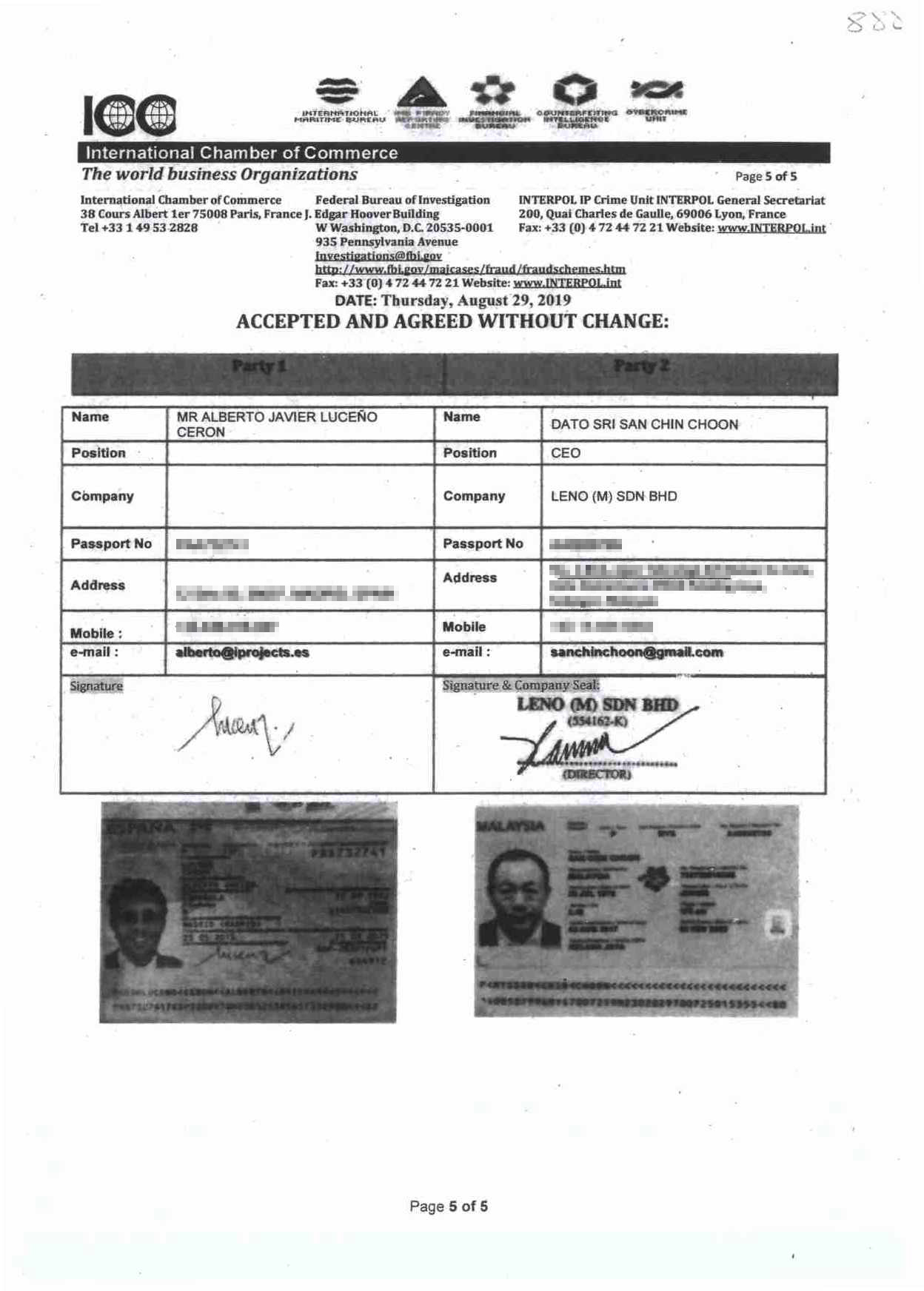The International Chamber of Commerce (ICC) has informed the judge that the contracts generated for the sale of medical supplies to the Madrid City Council are “false” as far as it is concerned and lack any support from the international organization. They are also a scam.
“The news of the intermediation operation carried out in the first moments of the pandemic between the Madrid City Council and an Asian supplier of medical supplies, by Messrs. Medina and Luceño, has been illustrated with the images of an alleged contract of the ICC with Mr. San Chin Choon. This contract has been based on a false model attributed to the International Chamber of Commerce. This false model, with the unauthorized inclusion of the old ICC logo, is a text that does not correspond to any model of a document endorsed by the ICC”, affirms the document addressed to Court 47 of Madrid.
In their first explanations to the Anti-Corruption Prosecutor’s Office, both Luis Medina and Alberto Luceño used in their defense the International Chamber of Commerce, whose logo appeared in the contracts for the purchase of material for the City Council and whose recommendations on the collection of commissions supposedly followed .
After the publication in EL MUNDO about the falsity of both statements, Judge Adolfo Carretero requested an official response from the ICC. Regarding the contracts, he replies that “the International Chamber of Commerce is not their author, nor has it participated in their elaboration or drafting of their stipulations, nor has it authorized the use of an old letterhead.”
It adds that the Spanish committee of the ICC “has reiterated over the years, in hundreds of response messages to users tempted with important commissions in suspicious operations, using the apocryphal contract model, that they take extreme precautions with that operation, that could not exist, and that at least the contract they were offering was not authentic, nor endorsed by the International Chamber of Commerce (ICC)”.
The response to the court reviews the contracts between Luceño and the Malaysian supplier of the material for the city council and concludes that it is a bungling that includes confusing and even incompatible clauses.
An example of this: “On page 683 of the false ICC model, the submission of disputes to arbitration by the International Chamber of Commerce is recorded. But on the same page, following clause, within the idea of Force majeure, it seems that first must go to a prior friendly settlement. Then it says that the applicable law is the ‘jurisprudence of the European Union [sic, own translation] or ‘before the lack of customs of the International Chamber of Commerce in Paris’ [sic], ‘the disputes over the interpretation or execution of the contract the parties declare to take residence within the jurisdiction of the civil court of Geneva’. To make things even more complicated, on page 684 he submits to three different rules for electronic communications.”
Regarding the commissions, Medina indicated that his were below the 10% recommendation that had been transferred to him by an ICC representative. As for Luceño, whose commissions were close to 50%, he maintained that this was the limit recommended by the ICC. The agency’s response is that there is no recommendation that could give any sign of correction to what they charged.
“The International Chamber of Commerce (ICC) does not include in its publication any criteria on the amount of the commission that corresponds to the intermediary, and there is no international guideline that quantifies that amount.” In its guidelines on the usual operation of the commissions, the ICC sets an example, in which the commission figures do not exceed 5% and that when talking about amounts such as those dealt with by Luceño and Medina, it remains at 2%.
Conforms to The Trust Project criteria
















